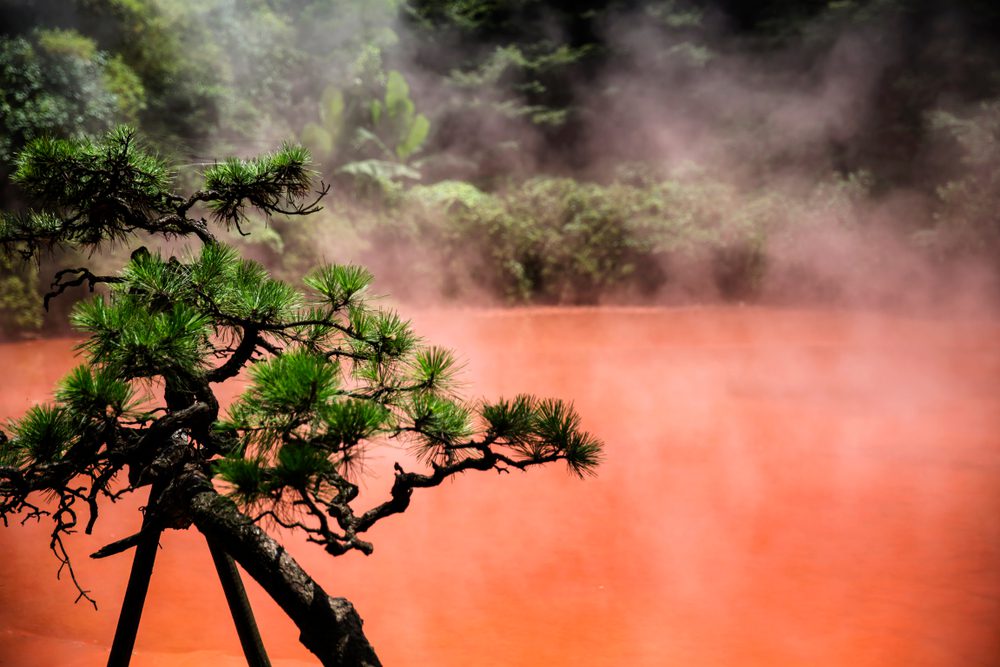Would you care to bathe in the blood-red pools of Japan’s Beppu city? At around 78°C (172.4°F), we wouldn’t recommend it. Beppu’s famous cluster of natural hot springs bubble away in an array of curious hues and temperatures, but perhaps the most arresting and dangerous is Chinoike Jigoku, whose name translates to “blood hell pond”.
It’s one of several hot springs, known as onsen, that you can take in on the city’s “Jigoku Meguri” tour, collectively known as the Beppu Hells. They’re found on the southern island of Kyushu in Japan, and are a collection of acidic geothermal ponds.
Chinoike Jigoku is too hot for spa treatments, but you can dip your feet in the waters where it’s cooler. The peculiar hot spring gets its rich color from sediments that are packed full of iron and magnesium oxide. This is why its aesthetic is quite so hellish, but Chinoike Jigoku also has a violent past.
According to Atlas Obscura, Chinoike Jigoku was once used for punishment, as people were tortured and boiled to death in its waters. Now the site is dedicated to healing, with treatments available onsite that get their natural products from the volcanic region’s environment.
They’re too hot for bathing, but there are some spots where you can dip your feet.
Image credit: Yobab / Shutterstock.com
As for why the blood hell pond is so hot, it links back millions of years to the formation of the Beppu-Shimabara graben that runs across the middle of Kyushu, Japan, from Beppu Bay in the east to the Shimabara Peninsula in the west. To this day it’s home to multiple active volcanoes, and as such there are volcanic, geothermal, and seismic forces at play creating a dramatic terrain. Beppu alone is home to 2,300 hot springs, but not all of them are as hot as Chinoike Jigoku.
You might think such a hot, hellish, and acidic environment would be too inhospitable for life, but a study that set out to investigate the microbial population of Chinoike Jigoku found evidence of several acidophilic microorganisms, including an unknown species of archaea.
Pools like the blood hell pond represent an exciting opportunity for scientists in search of extremophiles that could further our understanding of how microorganisms tolerate extreme environments. Lying in the “Ring of Fire”, Japan’s volcanic reputation means it provides many opportunities for investigation, yielding insights that could have various applications in an area of science known as biohydrometallurgy that explores how chemical agents can leach or dissolve metals.
Chinoike Jigoku might make for a hellish bath time, but it’s bubbling over as a hotpot of academic intrigue.
Source Link: Bubbling Blood-Red Hot Spring Of Chinoike Jigoku Makes For A Hellish Bath Time
